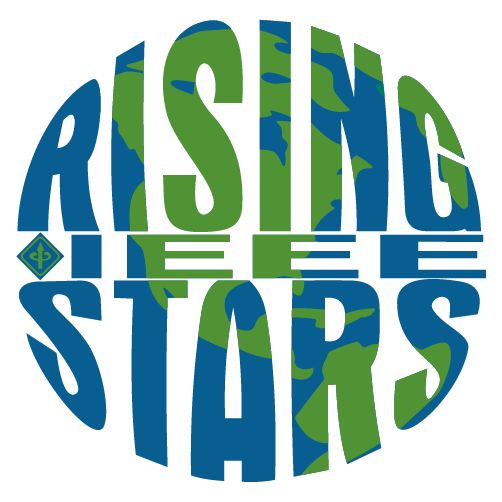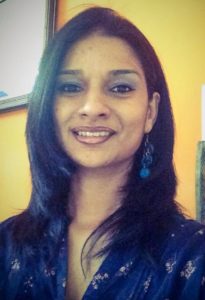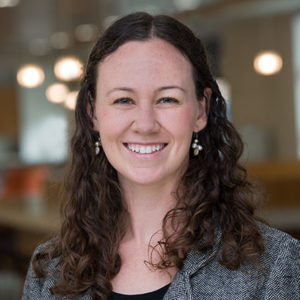Michael R. Andrews
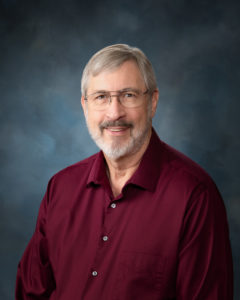
Mr. Andrews is Managing Partner of Andrews & Associates, a consulting firm specializing in new product development, business and management development, and Emergency Planning for business, schools and government entities.
Mr. Andrews is a Senior Life Member of IEEE and is currently serving IEEE members as the Past Director (Director 2013-14), AdCom member for the Technology and Engineering Management Society (TEMS), IEEE Vision, Innovation and Challenges Summit (VICS) Chair, IEEE Honors Awards Event Committee; IEEE Life Members Committee, Executive Producer of the IEEE Rising Stars Conference and member of the Phoenix Section Executive Committee. He is also the Arizona Region Coordinator for the Engineers Week Future City Competition and the originator of the SMART Competition.
Mr. Andrews’ commitment to the community includes serving as Arizona Region Coordinator for the Future City Competition, President of the Smart Education Foundation, host to the SMART Competition, the Salvation Army, member of the Grand Canyon University Engineering Advisory Board, the Williams Institute for Ethics and Management Board of Directors, and the Arizona LeaderForce.
He was awarded an IEEE Millennium Medal for outstanding achievements and contributions to IEEE and the IEEE-USA Robert S. Walleigh Award for Distinguished Contributions to Engineering Professionalism. Mike has also received the Salvation Army Sally Award for outstanding volunteerism, Hon Kachina Award (Excellence in Volunteerism, State of Arizona, AIA – Arizona Award of Distinction, Williams Institute for Ethics and Management (Board of Directors), Salvation Army Southwest Region Advisory Board (Chair, 2013-2015), The Collaboration for a New Century/Arizona LeaderForce (Business Champion).
Carolyn Andrews
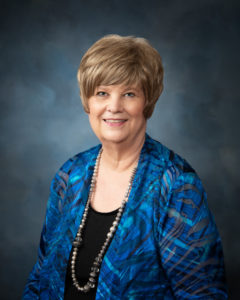
Carolyn is passionate about the power of inspiration! She knows that inspired people are engaged, productive and successful in any endeavor they undertake. She believes that the best way to get and stay inspired is to build strong and lasting relationships with people who have positive and supportive attitudes and believe in gratitude and abundance. Her mission is to help others learn and grow in every area of life through inspiration, amazing relationships and strong leadership skills.
Carolyn is a certified business and executive coach, an international speaker and best-selling author. She is also an experienced senior level corporate executive with extensive global experience in technology, risk management and marketing. She loves working with business owners and corporate executives to guide them in finding success by achieving their goals, excelling in their field and inspiring others.
Russell Harrison
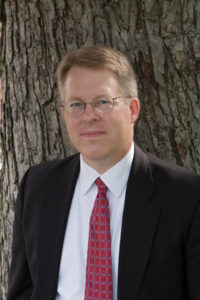
Russ has 25 years of experience working on behalf of professional societies, companies and trade associations in Washington, D.C. He is currently Director of Government Relations for the IEEE-USA, the American component of the world’s largest technical professional society. With nearly 180,000 individual members across the United States, IEEE-USA is the leading voice for technology professionals in the United States.
Over his 17-year career with IEEE-USA, Russ has represented IEEE members on dozens of policy issues including autonomous vehicles, digital privacy, AI, federal research funding, export control, and immigration. In addition to directly engaging with policy makers, Russ strives to build bridges between engineers and politicians. He has spoken at over 260 local, national and international events about public policy and the need for regular citizens to interact with their elected leaders.
Prior to IEEE-USA, Russ represented recycling facilities and the steel industry on Capitol Hill. He has a Master’s in Public Management from the University of Maryland and a B.A. in political science from Allegheny College. Russ is a Certified Association Executive (ASAE) and Planning Commissioner (Virginia Tech).
Phil Bautista
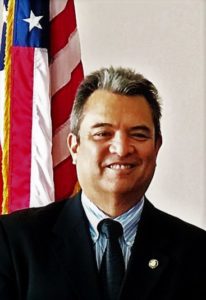
Phil Bautista is a Senior Member of the IEEE and an Extra Class Amateur Radio license holder (AA5EX). His contributions to technology include clients NASA, Dell, The United States House of Representatives and many others. As a member of both local Amateur Radio clubs in Washington D. C. and Texas as well as the Amateur Radio Emergency Services (ARES) he has participated in Simulated Emergency exercises including the Tri-Annual Airport Emergency Exercise at Washington National Airport. Holding operating licenses in other countries such as Belize (V31-KG) and The Bahamas (AA5EX/C6A), he has operated and contacted many other countries across the globe. His suggestion for the “Zombie Apocalypse” exercise grew from the observation that the younger generation seems to be reliant upon current proliferation of infrastructure and power grids. After talking with the Rising Stars team and other Amateur Radio operators the idea became reality and was incorporated along with the Software Defined Radio (SDR) as a workshop at the 2020 Rising Stars Conference. As CEO of his company, Bull Creek Data, he has agreed to pay the examination fee for any conference attendee wishing to take any of the three FCC License Exams available for Amateur Radio operators at the conference on 4-JAN-2020 from 0900-1200.
Scott Pederson
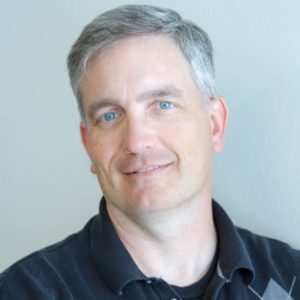
Scott Pederson is a Senior Cloud Engineer for the United States Money Reserve. He is also an Extra Class Amateur Radio operator (KI5DR). He has a long history of providing emergency communications for a variety of public service and natural disaster events. Throughout his work career, he has been involved in business continuity management, disaster recovery strategies and contingency plans, as well as physical and network security. He is a father of 4, experienced soccer coach and referee, and currently lives in Austin, TX.
Amy Lastuka
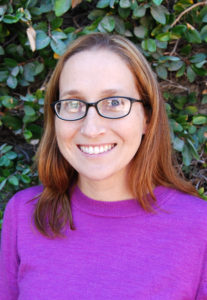
Amy has a master’s degree in electrical engineering and a PhD in economics and has a strong interest in humanitarian issues. While completing her PhD she worked at RAND Corporation, Amazon, and the International Rescue Committee (IRC). With the IRC she analyzed employment data on refugees that had recently immigrated to the United States. She is currently a Research Analyst at the Center for Sustainable Energy in San Diego, where she focuses on electric vehicle charging infrastructure. She is a member of the IEEE HAC committee and also volunteers with the San Diego Rapid Response Network who provide support to asylum seekers immediately after they are released from ICE detention facilities into the U.S.
Workshop
Due to recent changes in US policy toward asylum seekers, new logistical challenges have been created. Pressing needs for asylum seekers in the U.S. include shelter and access to legal assistance. Additional infrastructure needs exist in Mexico, where many asylum seekers are now required to wait. I will discuss a project I am currently working on to provide solar panels to a shelter in Tijuana as well as provide some additional thoughts on how IEEE region 6 and 9 members can get involved in supporting asylum seekers.
Keith Moore

Keith Moore works for the US Army Information Systems Engineering Command as a computer scientist at Fort Huachuca, Arizona. His career has ranged over the world to establish and maintain computer and communications systems. He has served in a number of volunteer and other organizations to work with others for the good of all stakeholders in organizations that include federal, city, and state governments, Big Brothers/Big Sisters, IEEE, Future City Competition, churches, Scouts, Civil Air Patrol, Cyber Patriot, and others. He has served as a big brother, engineer, missionary, science fair judge, Future City Competition mentor, coach, and firefighter/EMT. He holds a bachelors degree in electrical and computer engineering and a masters in business administration and management information systems, and maintains professional engineer registration with the Arizona State Board of Technical Registration. He currently volunteers as the IEEE Region 6 Director.
Matthew R. Rantanen
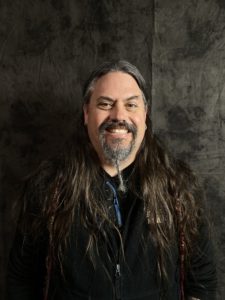
Matthew R. Rantanen is the Director of Technology for the Southern California Tribal Chairmen’s Association (SCTCA) and Director of the Tribal Digital Village (TDVNet) Network/Initiative that was started in 2001 designing and deploying wireless networking to support the tribal communities of Southern California. He is also “Partnering and Business Development” for Arcadian Infracom, a fiber infrastructure company, drawing new lines on the map, empowering the unconnected.
Matthew, of Finnish, Cree Indian, and Norwegian descent, has been described as a “cyber warrior for community networking.” He is an advocate for net-neutrality, broadband for everyone, and opening more spectrum for public consumption, always looking out for the unserved and underserved. Matthew has served as Chairman of the Board for (2) terms and is currently Vice-Chair and Treasurer on the board of directors for Native Public Media (NPM). He was named to the FCC Native Nations Broadband Task Force by FCC Chairman Julius Genachowski, and completed 2nd term, having been renamed to the task force by FCC Chairman, Tom Wheeler.
He also serves on the inaugural board of the American Indian Policy Institute (AIPI) at Arizona State University. Matthew is on the Tribal Advisory Group which advises the California First Responders Network (CalFRN), California Office of Emergency Services (CalOES) and the CA Broadband Council to the Governor, as well as the Long-Term Task Force to the CA Broadband Council. Matthew works with the National Congress of American Indians (NCAI) and is currently the Co-Chair of the Technology and Telecom Subcommittee and Co-Chair of their Technology Task Force. Matthew is on the Broadband Advisory Group for the Western Governor’s Association.
Matthew continues to develop policy and work with these partners in collaboration to get broadband deployed to the unserved and underserved communities.
Niru Kumar
Niru Kumar, SMIEEE obtained an undergraduate degree in power systems engineering from University of Mysore, India. After working for IT consulting companies, she decided to move to the U.S. and get back to her first love of power systems engineering. She finished her MS in Energy Systems from the University of Washington in Seattle and went to work for Pacific Northwest National Laboratory, a Dept. of Energy run National Laboratory. Her research interests included effective demand response techniques to improve energy efficiency. She completed her MBA from Cornell University where she was recognized both as an ‘Environmental Finance and Impact Investing Fellow’ as well as an ‘Emerging Markets Fellow’. From there she went to work for NextEra Energy where worked on Storage analytics, Microgrid analytics and Direct Load Control analytics for both FPL and NextEra. She later work for a FACTS startup based out of Union City called Smart Wires. Currently she works as a Senior Product Manager in Microgrids with Bloom Energy.
Niru’s interests also include the most cost effective methods of making technology accessible to the base of the pyramid. Niru is heavily involved with IEEE and its humanitarian technology efforts. She is currently chair of the Projects Funding committee under the IEEE Humanitarian Activities committee. She is also the IEEE Region 6 Humanitarian Activities Coordinator. She works with the South Asia Working Group of IEEE Smart Village. She is also part of IEEE USA’s Energy Policy Committee. She has also served as Region 6’s Women in Engineering coordinator in 2011-2012 helping set up various Women in Engineering groups for the benefit of IEEE women engineers.
Workshop: IEEE Humanitarian Initiatives
David E. González
David E. González is a graduate of California Polytechnic University, Pomona (Cal Poly Pomona) with a Bachelor’s of Science degree in Electrical Engineering (BSEE). He earned a Master’s degree in Business Administration (MBA) from the University of Redlands, Whitehead College of Business. He finished the coursework the Naval Postgraduate School, Masters of Science in Program Management (MSPM). He has work for aerospace industry, Department of Defense (DoD), and the U.S. Navy over his 25 years career. Through his work with the with the U.S. Navy Mr. González in the areas of metrology (calibration) and Research & Development projects that have involved the joint armed services.
Mr. González is also involved and leading an initiative through IEEE-USA in a project called U.S. Government Communities of Interest (USG CoI). One of the areas that USG CoI looks to help is our veterans suffering from Post-Traumatic Stress Disorder (PTSD).
Dr. Stephanie Gillespie
Dr. Stephanie Gillespie is a Lecturer at the Tagliatelia College of Engineering at the University of New Haven in West Haven, CT. Her PhD from Georgia Tech focused on machine learning and signal processing for affective computing, specifically detecting stress and depression in adults with communication disorders. Since entering academia, she has been passionate about preparing the next generation of engineers with real-life skills, specifically by teaching courses in the area of engineering service learning, first-year engineering courses, and the Grand Challenges of Engineering. Her research interests span multiple areas of engineering education including maker-spaces, multidisciplinary teams, and entrepreneurial mindset. She currently serves on the EPICS in IEEE committee and is active in multiple service efforts throughout her local community and other professional organizations.
Mina Hanna
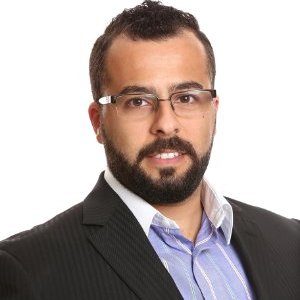
Mina Hanna is the current Chair of the IEEE-USA Artificial Intelligence and Autonomous Systems Policy Committee, the current Co-Chair of the Policy Committee of the IEEE Standards Association’s Global Initiative on Ethics of Autonomous and Intelligent Systems and the current Vice Chair of the IEEE-USA Research and Development Policy Committee. He serves as Editor of the Science Policy Column and is a member of the editorial board of IEEE Computer magazine. He is also a member of the IEEE Computer Society, the IEEE Computational Intelligence Society, the IEEE Society on Social Implications of Technology and IEEE TechEthics, a number of IEEE Future Directions Initiatives and multiple IEEE-SA P7000 standards working groups. Mina is also a Global Shaper of the World Economic Forum.
Mina is also a senior software consultant at Synopsys, Inc. Prior to joining Synopsys, he worked for 6 years at Intel Corporation in the Platform Engineering Group on the Intel Atom Processors and SOCs, having contributed to 10+ design tapeouts. Mina received his MSc in Electrical Engineering from Stanford University, and his BSc in Electrical Engineering from the University of Texas, Austin. His research interest lies in evaluating the impact of artificial intelligence, autonomous & intelligent systems and disruptive technologies on public safety, national security, responsible governance and social inclusion, and in exploring the political economy and policies surrounding the development of AI.
Mariel
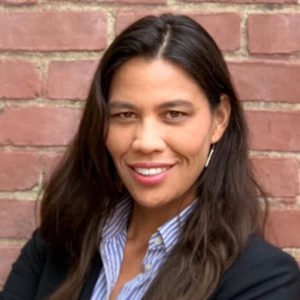
Mariel Triggs is the CEO of MuralNet, coordinating deployments, partnerships, and policy advocacy efforts. Nearly half of those living in rural communities in the US still lack broadband access. On tribal lands, the problem is more acute, with almost two-thirds lacking access to adequate Internet. MuralNet helps bridge this digital divide by providing infrastructure, legal, financial, and educational resources so that tribal nations and tribally-controlled organizations can build their networks. She has taken part in every aspect of builds from applying for licenses and funding to staging and mounting equipment. As an engineer, educator, and researcher, she has pushed innovation in STEM classrooms through project-based service learning for over a decade. Her work in online math curriculum proved how vital access to Internet resources is for content as well as mindsets. Because of this, Mariel strives to make the Internet accessible for all students. Before her work in education, she designed and tested medical devices to treat strokes, recyclable replacements for polyurethane, and more efficient methods of producing photo-chemicals at scale.
Mariel earned two degrees in engineering at UC Berkeley and a Master’s at Stanford in Curriculum Studies and Teacher Education.
